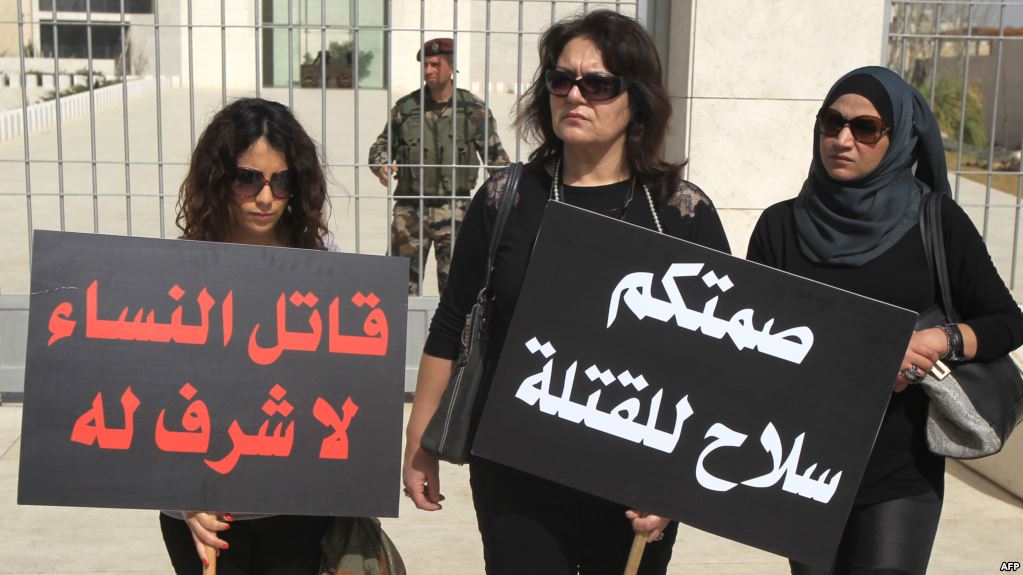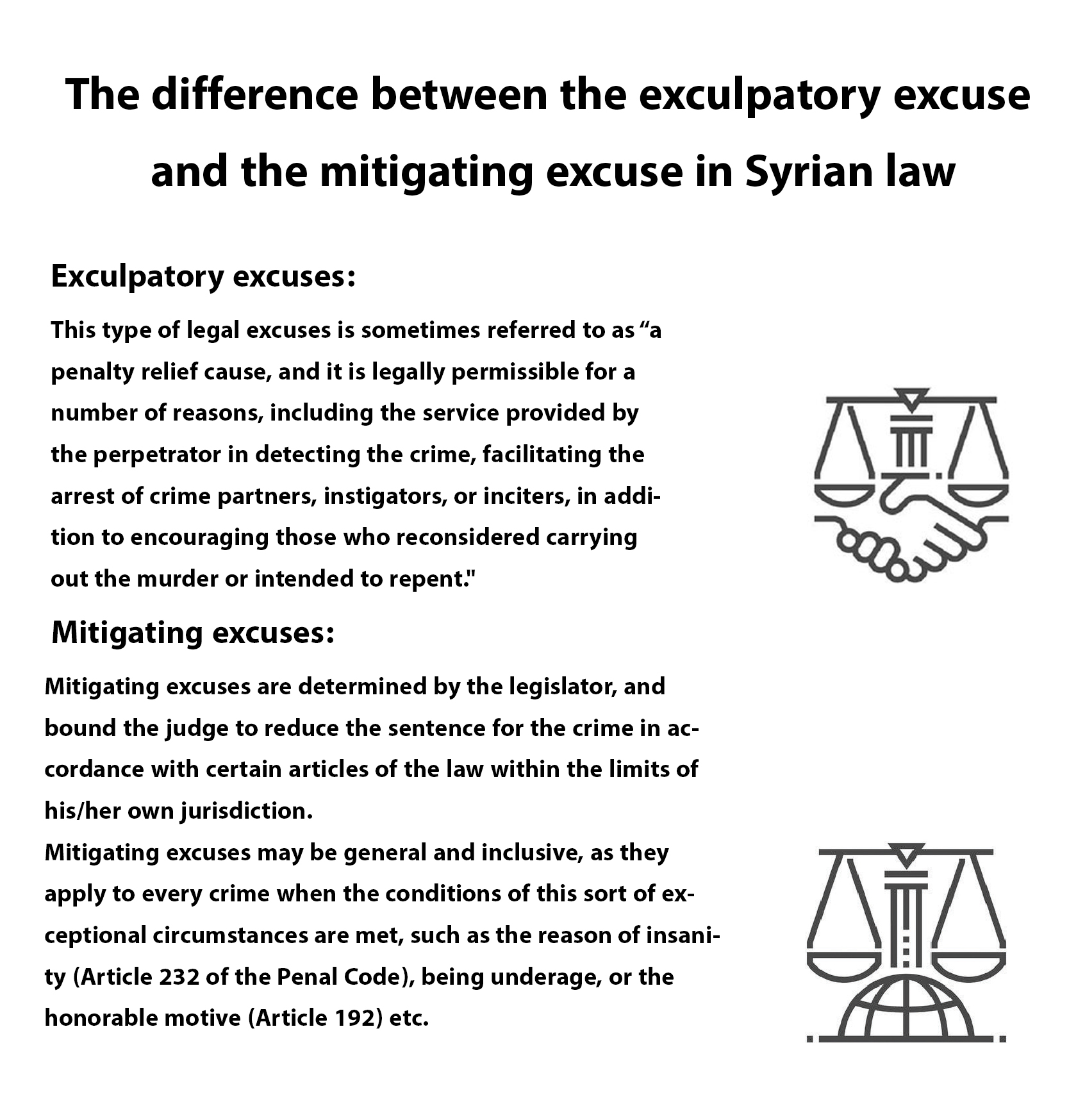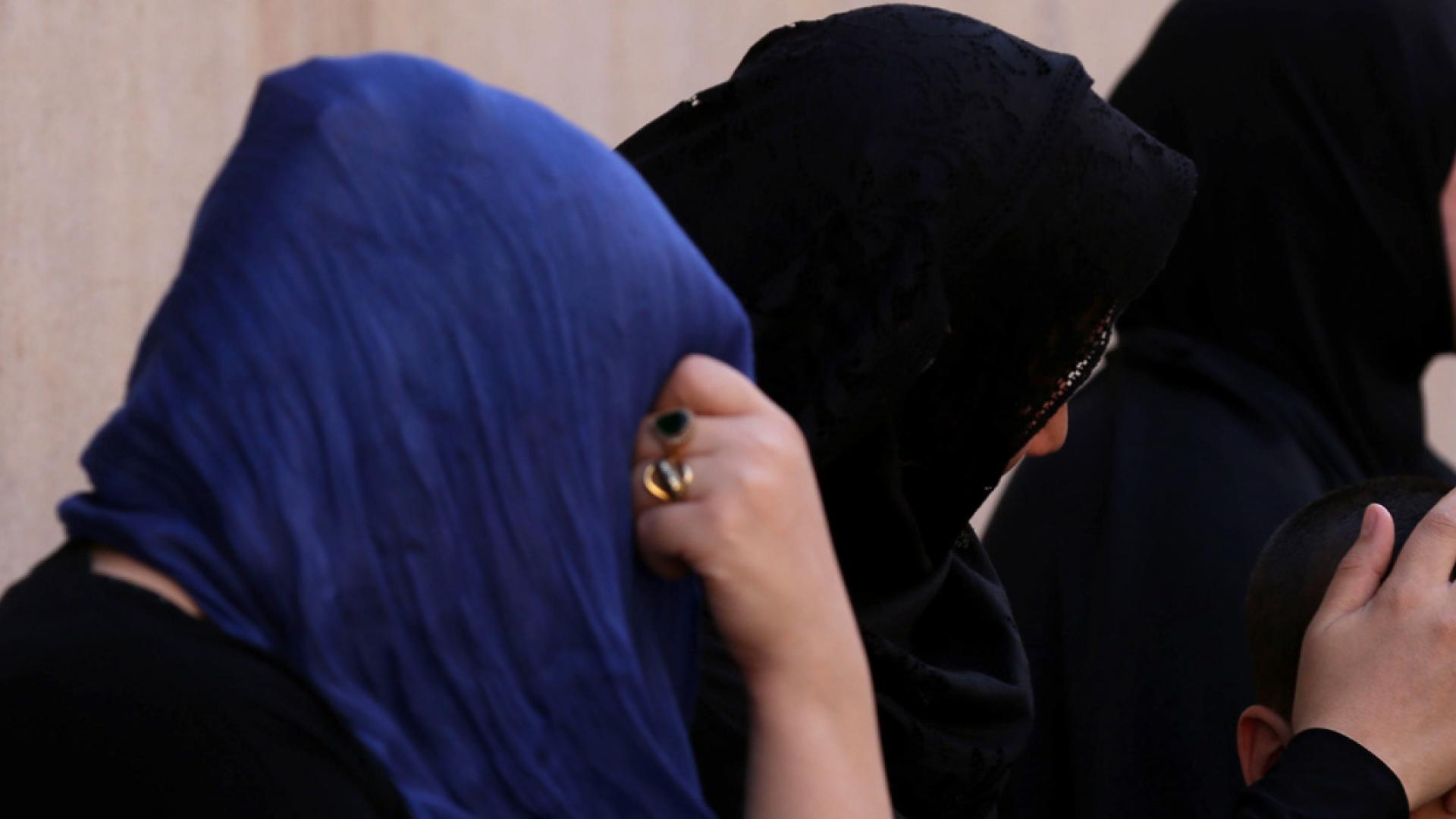Enab Baladi’s Investigation Team
Nour Dalati | Hala Ibrahim | Reham Assaad | Mohamed Homs
The “nightmare” of the 18-year-old Rasha haunted her until it turned into a reality that ended her life with Kalashnikov shots while social media users watched it live.
The killer, who live-streamed his crime in a video, claimed to be her brother and that he “washed away his shame.” There had not been many stories on the incident, as the main story was documented in a channel on messaging website Telegram called “Jarabulus News the Nightmare,” which incited to kill her, accusing her of prostitution.
The channel is dedicated to publishing scandals and practices of the opposition factions in the city of Jarabulus in the northern countryside of Aleppo. Under the pretext of exposing the violations of the opposition members, the channel publishes news about sexual relations between the members and women in the region.
Rasha Bseis was the first victim of the publications of this channel. However, other girls the channels clearly publishes their names and photos and accuses them of “immoral behaviors” may be future victims of a Syrian social custom that gives the family the right to end the life of a girl they suspect to have immoral behaviors.
Rasha’s story, which started and ended in public pages and groups on social media, caused great sympathy that predominated some voices praising her killing. Nonetheless, such incidents, which judicial statistics indicate that they have been and are still widespread in Syria, are often concealed.
This issue was first unveiled from inside the houses to the public in 2005. This was backed up by a movement of some human rights organizations and women’s groups, and resulted in a legal and judicial response following which laws related to “honor crimes” had been amended, in addition to the start of the documentation of the victims of these crimes.
However, the monitoring of the phenomenon had stopped by 2014 with the start of division in the Syrian society due to differences between the geographically dominant forces, and the following demographic and ideological tendencies that made Syrians communities spread over the most stable cities, areas of displacement and countries of asylum.
Within the borders… various forms of “honor crimes”
In July 2016, pro-regime newspaper al-Watan quoted Rif Dimashq Attorney General Maher al-Alabi saying that “honor crimes” have significantly increased. The newspaper estimated that they have quadrupled, based on “judicial sources.”
Al-Alabi accused the opposition fighters of “inciting the girls to rebel against their own families and inciting the families to kill their girls,” which, according to him, led to an increase in this type of crimes.
However, the statistics carried out by Syrian state institutions do not include the opposition-controlled areas. This, therefore, contradicts al-Alabi’s claims and limits the increase he had talked about to the regime-controlled areas.
On the other hand, in some areas controlled by extremist Islamic forces, this issue has come out of the family framework and entered into the framework of the application of Sharia.
ISIS had posted several videos showing the implementation of the punishment of “stoning to death” against women accused of adultery. YouTube website have documented some of these punishments, including those that were carried out in the countryside of Hama in November 2014, and the city of Mayadin in the countryside of Deir ez-Zor on May 14, 2017.
Al-Nusra Front has also carried out similar punishments, but women were shot to death. At the beginning of January 2015, a video had been circulated on social media pages showing the execution of a woman in the city of Maarrat Misrin in the countryside of Idlib on charges of committing “immoral” acts.
These punishments have generated a fear that contributed to reducing issues that lead to crimes of honor, according to Col. Adeeb al-Shallaf, Head of Aleppo Free Police.
Al-Shallaf confirmed in an interview with Enab Baladi that he has not encountered “honor crimes” during his work as Head of Aleppo Free Police and attributed that to people’s awareness that they are in general danger. However, he did not rule out that such crimes are not allowed to be disclosed.
The director of the Women and Child Care Office in Jabal Zawiya, Fatima al-Hajji, has a similar point of view by virtue of her connections with many Syrian young women, and believes that “honor crimes” are not widespread in the opposition-controlled areas. She attributed this to the fact that parents have started taking more strict measures against their daughters by forcing them to dress specific clothes, controlling them and restricting their freedom.
Al-Hajji added to Enab Baladi that the parents have resorted to marrying off their underage girls, out of fear for them and to prevent the possibility of their deviance from the behaviors determined by religion and society.
However, these solutions did not work well enough. Rasha was married when she was underage, but this did not save her from a fate that her brother was its brutal tool.

Rasha Bseis was killed in Jarabulus in the countryside of Aleppo by her brother under the pretext of “washing away the shame” – October 2018 (designed by Enab Baladi)
Abroad, the justifications of the crime have not changed
Bashar Bseis, Rasha’s brother and the killer who used social media websites as a scene for his crime, was not the first to do so. Abu Marwan, the Syrian refugee in Germany, streamed a live video on his personal page in March, admitting killing his ex-wife in front of his children under the pretext that she married a man of different religious belief and did not allow their children to live with him.
Abu Marwan called social media websites users to share the video on a large scale, so that his ex-wife would be “a lesson for every woman who deviates from the straight path,” as he put it.
This man’s existence in a country that does not recognize “crimes motivated by honor,” as they are called in the Syrian judiciary, led to his trial and sentencing him to life imprisonment. The German judiciary considered that he had committed the crime under “religious motives.”
The case of Abu Marwan sheds light on the transmission of some Syrian social norms abroad, without considerations of non-religious laws that gave Syrian women in Europe unprecedented freedoms and protection from male power.
However in Turkey, where religious beliefs of the Syrians and the hosting community are very similar, crimes under the pretext of honor committed by Syrians have taken greater freedom despite the strict laws in force.
The most recent crime was registered in August, when the Syrian Mohammed al-Abed killed his wife, accusing her of cheating on him. The crime was committed in cooperation with his wife’s brother, according to details published by the Turkish newspaper Hürriyet.
Although the Turkish law penalizes such crimes with life imprisonment, “honor crimes” are increasing in Syrian areas that are controlled by Turkish-backed forces, including the case of Rasha in the city of Jarabulus.
Col. Adeeb al-Shallaf believes that the chaos in these areas and the large displacement movement inside them have helped causing this type of crimes.

Abu Marwan, the Syrian refugee in Germany who streamed a live video after murdering his wife (Facebook)
Syrian law gives a mitigating excuse for “honorable motives”
The Syrian Penal Code promulgated by Legislative Decree No. 148 of 1949 had been exempting the murderer from penalty in case he committed murder under “honorable motives” by giving him an excuse from this punishment. The Penal Code was first amended in 2009, making the penalty of the murderer who commits a crime under such motives to a maximum of two years imprisonment.
This had continued until the issuance of Decree No. 1 of 2011 that rescind the text of Article 548 of the Syrian Penal Code, which stated that the murderer “takes advantage of the permissive excuse in case he catches his wife, one of his relatives, distant relatives, or sister in the acclaimed crime of adultery or vulgar sexual intercourse with another person, so he killed or harmed them, or killed or harmed one of them unintentionally. The perpetrator of the killing or harm shall benefit from the mitigating excuse in case he catches his wife, one of his relatives, distant relatives, or sister in a suspicious situation with another person.”
As such, Article 548 was replaced by Article 15 of Decree No. 1 of 2011, which abolished the use of the exculpatory excuse of preserving the family’s honor for exemption from penalty. However, Article 15 omitted the factor of suspicious circumstances that may justify granting the killer an excuse for his wrongful deed, leading potentially to exculpation in the previous draft of the law. Hence, keeping this particular clause would expose Syrian women to the risk of being murdered under the pretext of honor that can stand as a legal justification for homicide in case the defendant, who could not prove the act of adultery, is suspicious of a certain situation that may implicate sexually dishonorable demeanor from the victim’s part.
According to the article, “anyone who catches his wife, kin or sister in the act of adultery or erroneous sexual conduct with another person and ends up killing or injuring both of them or just one unintentionally, shall be imprisoned from five to seven years for committing manslaughter.”
Therefore, if the murderer proves that his wife or sister has committed the adultery offense and that he caught the victim in the act, he benefits from a reduction of the sentence, namely, from a minimum of five years to a maximum of seven years in prison determined by the court.
The honorable motive in Syrian law
Article 192 of the Syrian Penal Code took into consideration the mitigating factor for crimes committed in the name of honor, in addition to providing for lenient penalties for murders triggered by the honorable motive.
The Penal Code defined the “motive” as “the cause that drives the perpetrator to commit murder or any other extreme behavior against the victim.” However, the law did not specify the nature of the honorable motive, leaving the task of defining and determining its exact meaning to the judge.
After several attempts to properly interpret the honorable motive, the Court of Cassation has reached several definitions of the legal term, such as “an unbridled emotional impulse that drives the murderer to commit his crime under the influence of a sacred idea that is far from selfishness, hatred, and revenge, notwithstanding a personal interest or a private whim or purpose.”
Moreover, in another effort to determine the problematic legal phrase, the Court of Cassation considered that the honorable motive is “an unbridled emotional impulse that causes the perpetrator to commit his crime under the influence of a sacred idea which he could not ignore, neglect or suppress, and which consists of preserving and protecting one’s honor. The honorable motive stands as a justification once the murder takes place due to committing an act that tarnishes the offender’s sense of honor regardless of the time of crime,” according to the 2nd issue of Lawyers Magazine, entitled “Interpretation of the Court of Cassation No. 1157” and published on November 30, 1982.”
According to Article 15, the presence of the surprise factor is necessary to grant the mitigating excuse for the murderer: “Anyone who catches his wife, kin or sister in the act of adultery (…).” Yet, laxity in reacting to the incident or delaying the crime to the next day or later negates the element of surprise, which is the main trigger for the killer’s rage. Thus, in such case the murderer becomes no longer eligible for benefiting from such legal excuse.
The Court of Cassation also affirmed that “the honorable motive should not be taken into consideration in case it is not directly related to the act of murder. Such discovery may occur by means of other strongly suggestive evidences that the corresponding motive did not exist in the time of the murder which might have happened for other reasons.” Accordingly, if a father kills his married daughter due to her misconduct before marriage, for instance, the murderer in this case will be trailed for causes other than the honorable motive, which serves in some other cases as a mitigating factor in homicide penalties, according to the 1979 issue of Lawyers Magazine.
https://s3-eu-west-1.amazonaws.com/enabbaladi/arabic/wp-content/uploads/2018/10/1-041.jpg
The difference between the exculpatory excuse and the mitigating excuse in Syrian law
Honor crimes in Sharia
Sharia rejects individual vengeance, and urges that such cases must be referred to the competent judicial authorities to process the details of the crime in a fair trial based on legitimate evidence and arguments that are consistent with reason and logic.
The Syrian Islamic scholar, writer and former member of the People’s Council of Syria, Mohammad Habash, defines the term “honor crime” as “the crimes of retaliation against a woman or a man resulting from a suspicion of perpetrating sexually obscene conduct. Such terminology is objectionable and unacceptable, in linguistic and Sharia terms.” Habash insisted that the use of the expression “honor crime” “was familiarized through media discourse, rather than the words of Islamic scholars.”
In his study “Honor Crimes between Sharia and Law,” Habash stated that Islam firmly prohibited adultery and considered it as an ethical and social crime, especially “when it includes marital infidelity. In this regard, the glorious Islamic Sharia preserves the stability of the Muslim family.”
The Islamic scholar added that it is evident that “the Islamic law will determine a deterrent punishment against the parties guilty of adultery if proven by strong evidences.” At the beginning, the Islamic penalty for adultery consisted of whipping adulterers, which was a common pattern of punishment among Muslims during that period. However, throughout the history of Fiqh (the philosophy of Islamic law), the adultery punishment has undergone many amendments to suit evolving lifestyles and different legislative norms in each country.
According to Habash, Sharia’s punishment for adultery is not a private matter that can be executed individually and at any given time. He clarified that this subject can only be treated by legitimate authorities, which have a duty to enforce the law. Thus, carrying the punishment can only take place after a given nation chooses and approves to implement such penalty through its democratic institutions. Likewise, Hudud (punishment fixed in the Quran and Hadith) necessitates several necessary and accurate conditions in order to apply the Islamic sentence correctly.
Nevertheless, the Islamic scholar pointed out that these conditions are “extremely severe and rigorous” which makes them impossible to execute.
He considered “honor crimes” as an unacceptable deed according to principles of Fiqh: “We choose to punish the offender by applying Qisas (the right of a victim’s nearest relative to take the life of the killer), with the possibility of easing the punishment and considering the mitigating excuse if the surprise element and the guilt of adultery are proved to take place during the time of murder. The complementarity between these factors will enable Islamic jurists to fulfill the purposes of Sharia, namely justice and fairness for all.
Habash also called for banning all forms of honor vengeance, which he referred to as a clear violation of the provisions of Sharia and its objectives.

The signs say: Your silence is the murderers’ weapon – Women’s killer has no honor – Sit-in in Palestine against honor crimes (AFP)
Civil-artistic activism failed to support female victims of honor crimes
The aggravation of the issue of “honor crimes” and its transformation into a public opinion case in Syria in the middle of the last decade led to the emergence of new legislations and a change in judicial methods vis à vis the phenomenon. Since then, victims of “honor crimes” among Syrian women and young girls have been recorded in official and unofficial statistics used by human rights activists to monitor the increase and decrease of honor crimes rates.
At that time, the seemingly intensifying pace of such crimes required greater openness to the problem, as Syria ranked third among Arab countries in 2010 in terms of the number of honor crimes, after Yemen and Palestine, according to statistics published by the Syrian newspaper al-Watan. Accordingly, during that year 249 cases of honor-motivated murder have been committed in Syria.
Human rights activism
In 2005, the Syrian Women Observatory launched a campaign “to stop honor crimes,” aiming to abolish Article 548 of the Syrian Penal Code and to amend Article 192. Such law alterations will make sure that offenders implicated in “honor crimes” receive the same treatment as other murderers without the possibility of taking prior advantages of the law.
Three years later, a national conference entitled “National Forum on Honor Crimes” was held and it was concluded by giving a set of recommendations aimed at combating “honor crimes” in Syria.
Human rights activist Rima Flihan, one of the women who participated in human rights campaigns back then to confront these crimes, told Enab Baladi that these campaigns were carried out by activists and civil society organizations in order to call for abolishing the exculpatory excuse following which the crime of the murderer who kills under the pretext of honor is justified.
Flihan pointed out that the pressure these campaigns have exercised is legal, because the law is the one facilitating the commitment of such crimes, through allowing the perpetrator to benefit from the reduced sentence.
Thanks to these moves, Article 548 of the Syrian Penal Code was amended by Presidential Decree No. 37 of 2009, and the perpetrator of such crimes was sentenced to up to two years.
However, according to the Observatory and the perspective of international human rights organizations, including Human Rights Watch (HRW), these movements were not enough. HRW issued a report in July 2009 entitled “No Exceptions for Honor Crimes” and stated that the amendment represents a positive change to the law, but still reduces the sentence for those who kill women.
Subsequently, Decree No. 1 of 2011 was issued in response to the pressure exerted by the human rights movement and as a result the punishment for “honor crimes” perpetrators has amounted to seven years, as a maximum limit.
This amendment contributed to the decline of the crimes committed under the pretext of the defense of honor and reputation. The local newspaper al-Watan has published judicial statistics five years ago, which indicated that the number of “honor crimes” has declined between 2012 and 2013 to about 47, describing these numbers as low.
The Syrian Women Observatory led the civil activity against the justification of murder under the pretext of defending honor. It also organized a series of lectures in a number of Syrian cities. However, this activity declined significantly during the Syrian revolution.
Drama is blowing the whistle
Syrian Drama was liberated at the beginning of the last decade from several social and censorship restraints. It has managed to break stereotypes and be able to reflect phenomena and issues that were not brought to the screens.
Several series have dealt with the issue of “honor crimes,” in an attempt to advocate civil work that took the form of seminars, lectures and campaigns carried out by the Observatory.
The series “Ahl al-Raya,” produced in 2008, triggered an old social phenomenon in Syrian society and the issue of the murder of a girl whose virtues have been questioned. However, the series addressed her story in a dramatic way. The girl was acquitted due to the lack of witnesses to the “forbidden” act she committed.
Prior to that series, there was Seret el-Hob, produced in 2007, which depicts a realistic situation where the girl was killed by her family, but the perpetrator was not held accountable because the issue is related to honor.
Several other series and films addressed the same subject, in order to shed light on the issue and raise society’s awareness about how serious it is, but the way they tackled the issue did not offer practical solutions or calls to take legal procedures to curb it.
These moves in general, either at the civil, artistic, or even human rights levels, do not seem to have yielded tangible results, especially during the war and the consequent crises it has caused at the psychological, social and economic levels.
Naming incites crime
Naming’s that describe the murder of a woman who broke the family tradition or exceeded the limits of Sharia and the prevailing law have obviously differed. However, it has justified the act of committing the crime under the pretext of honor and the provoking feelings that triggered the perpetrator.
The common denominator in Syrian society is the term “washing away the shame.” The word “honor crime” is more common among the class of intellectuals and opponents of this type of crime, as well as in the media sector. The Syrian law sought to control the naming even more, and introduced a new concept, which seemed worse than the previous ones, a “murder motivated by honor.”
Limited Syrian calls to reverse the meaning of “honor”
The organizations did not ignore the disaster brought by these namings, since the motive of the crime may not always be “adultery” or relations that are forbidden by religion or law. These crimes may be committed within the context of legitimate marriage without the knowledge or consent of the parents or an interfaith and inter-sectarian marriage. This is very common in Syrian society, where there are many religions, sects and ethnicities.
There have been calls to combat verbal contradiction and not to associate the term honor with crime, considering that “honor” is a noble attribute that should not be associated with the term “crime” which is indeed a shameful act regardless of the motivations and causes. Besides, a group of able-bodied males collaborating to kill a much weaker female does not really correspond with the meaning of honor, but rather contradicts with it completely.
These calls were embodied in the Arab society, but they were completely absent in the Syrian society. The calls in the Syrian society were limited to imposing heavier sentence on the perpetrator and defending the weakest party in these crimes, while the Syrian organizations, which were active in this field, have failed to confront the issue of the naming that served as partners in crime and factors of incitement.
Despite the weakness of the Syrian human rights response to the terms of this “foresight,” the Jarabulus incident was an awakening moment for Syrians via social media websites. It was provoked by one of the perpetrators who used the term “wash away your shame” to incite the brother of the victim to kill her. The “no honor crime” hashtag spread on social media websites denouncing the crime, attached to the picture of the girl’s corpse in the same position as she was killed.
“Those who are killing under the name of honor are frenzied beings lacking mental and human powers,” said Syrian writer and activist Rima Flihan when commenting on the incident. “The lenient law encourages crime, and so does society and its prevailing customs,” she added.
The names of these crimes are linked to the social heritage, which limits the honor of the family to the woman’s body and behavior, she clarified. Flihan also noted that the namings are partners in the crime, but they are not the only stimulant factor for committing such crimes. There are other factors too, including the protection law and society are providing for the offender.
“We, as activists in the field of women’s rights, have always expressed our rejection of the idea of associating a crime with honor,” she insisted.
The danger of pronouncing words such as “shame,” “scandal” and “honor” and associating them with crimes lies in the fact that the structure and culture of society are reflected in its language. Therefore, vocabulary and terminologies used to express an idea can affects its essence and push one to deal with it in a different way, as it is the case with the crimes committed in the name of “honor.”
if you think the article contain wrong information or you have additional details Send Correction
النسخة العربية من المقال
-
Follow us :












 Expressive (Snopes)
Expressive (Snopes)





 A
A
A
A
A
A














 More In-Depth
More In-Depth